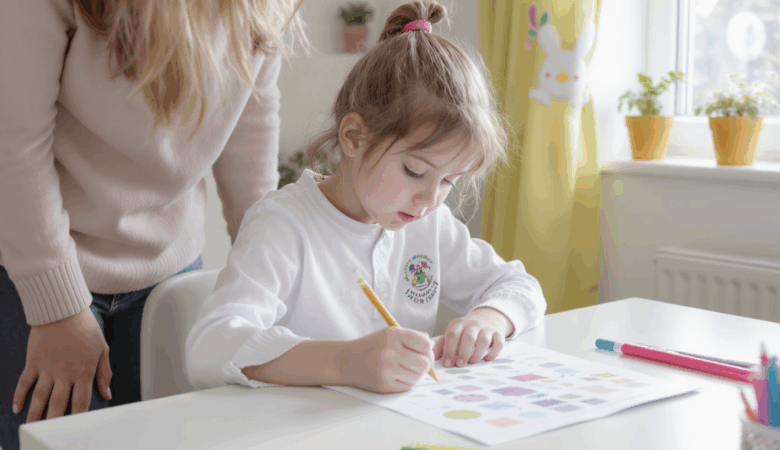Preparing for the best 11 Plus Exam Score can feel overwhelming, especially because of the pressure to perform well and secure a place in a top grammar school. However, developing the right study habits can significantly improve your child’s performance and boost their confidence. In this article, we’ll explore proven, practical study strategies that are tailored for pupils preparing for the 11+ exams. Whether your child is just starting out or already revising past papers, these habits can make all the difference.
1. Create a Consistent Study Routine Focusing on Your 11 Plus Exam Score Goal
One of the most effective ways to prepare for the 11+ exams is by establishing a structured study routine. Consistency helps pupils retain information better and reduces last-minute stress.
Tips for building a routine:
- Choose specific times each day dedicated to study
- Start with shorter sessions (20-30 minutes), gradually increasing duration
- Include regular breaks to avoid fatigue
- Schedule both weekdays and weekends for study (with lighter sessions on weekends)
A predictable routine conditions the brain to focus better during those hours and builds a strong learning habit.

2. Set Clear and Achievable Goals
Goal-setting keeps your child motivated and focused. Instead of saying, “study English today,” break it down:
- “Practise 10 verbal reasoning questions”
- “Revise synonyms and antonyms for 15 minutes”
Use a planner or digital app to track progress. Crossing off completed goals boosts morale and provides a sense of achievement.
We offer a tracking system in our online platform. Create your account and try it by clicking here.
3. Use Past Papers Strategically
Past papers are one of the best resources for 11+ exam preparation. They give insight into question formats, time pressure, and commonly tested topics. Familiarisation with the format of the test is one of the most important skills to develop during this phase.
How to use past papers effectively:
- Start with untimed practice to build understanding
- Progress to timed conditions to build speed and accuracy
- Review errors carefully: What went wrong? Why?
- Focus on topics or question types where mistakes are recurring
Aim to complete at least one full paper per week in the final two months.
GL Assessment offers some papers for practice here.
4. Mix Active and Passive Learning Techniques
Children absorb information in different ways. Combining passive (reading, watching videos) and active methods (quizzing, teaching back) enhances retention.
Examples of active learning:
- Teach a parent or sibling what they just revised
- Create flashcards and test themselves regularly
- Use apps like Quizlet to reinforce vocabulary or maths rules
- Create mind maps for topics like comprehension or maths strategies
Passive methods are useful too but should be combined with active recall to ensure deeper understanding.
5. Prioritise Sleep and Wellbeing
You might be surprised to see this in a study tips list, but a well-rested child learns better. Sleep plays a vital role in memory consolidation and cognitive function.
Tips for supporting rest:
- Establish a regular bedtime routine
- Avoid screens at least an hour before sleep
- Include downtime in the evening (reading, puzzles, calm music)
A stressed, tired child is less productive and more prone to mistakes.

6. Create a Distraction-Free Environment
Minimising distractions leads to better focus. That means:
- No phone or TV during study time
- Having a clean, quiet space dedicated to studying
- Having all materials ready before starting (notebooks, pens, water, etc.)
Some parents use a study timer (like the Pomodoro technique: 25 mins study, 5 mins break) to help children focus better.
7. Review, Don’t Just Revise
Revision is not just about re-reading notes. Encourage your child to review by summarising content, testing knowledge, and explaining concepts aloud.
Key review methods include:
- Weekly review sessions to go over the week’s topics
- Creating summary sheets for each subject
- Recording voice notes of explanations and listening back
The goal is not just to memorise, but to understand and apply knowledge.
8. Track Progress and Celebrate Small Wins
Monitoring progress is vital to keeping motivation high. Whether it’s a mock test score improvement or mastering a difficult topic, celebrate wins.
Ideas to celebrate:
- Verbal praise and encouragement
- Small rewards for consistency
- Visual trackers (like sticker charts or progress bars)
This builds a growth mindset and keeps your child positive about their learning journey.
9. Tailor Study to Exam Format and Board to Secure a Good 11 Plus Exam Score
Not all 11+ exams are the same. Some follow GL Assessment, some schools use bespoke formats. Each of them also will have a different 11 plus exam score.
Make sure your preparation is aligned with:
- The right subjects (e.g., verbal reasoning, non-verbal, maths, English)
- The style of questions (multiple choice vs standard)
- The timing format (some sections may be more time-pressured than others)
Ask the school or look up your local council’s requirements.
10. Include Fun, Low-Pressure Learning Activities
Keep the experience enjoyable too. Include:
- Educational games (Scrabble, Boggle, logic puzzles)
- Audiobooks and storytelling
- Reading non-fiction to build vocabulary naturally
- YouTube explainer videos for tricky maths topics
Keeping the learning atmosphere positive reduces resistance and burnout.
Final Thoughts
The 11+ exam journey is a marathon, not a sprint. By building strong, sustainable study habits, your child isn’t just preparing for one exam – they’re developing skills for life. The key is balance: structure without stress, consistency without burnout. This is the best way to secure the best 11 plus exam score.
Ready to go further?










Leave a Reply